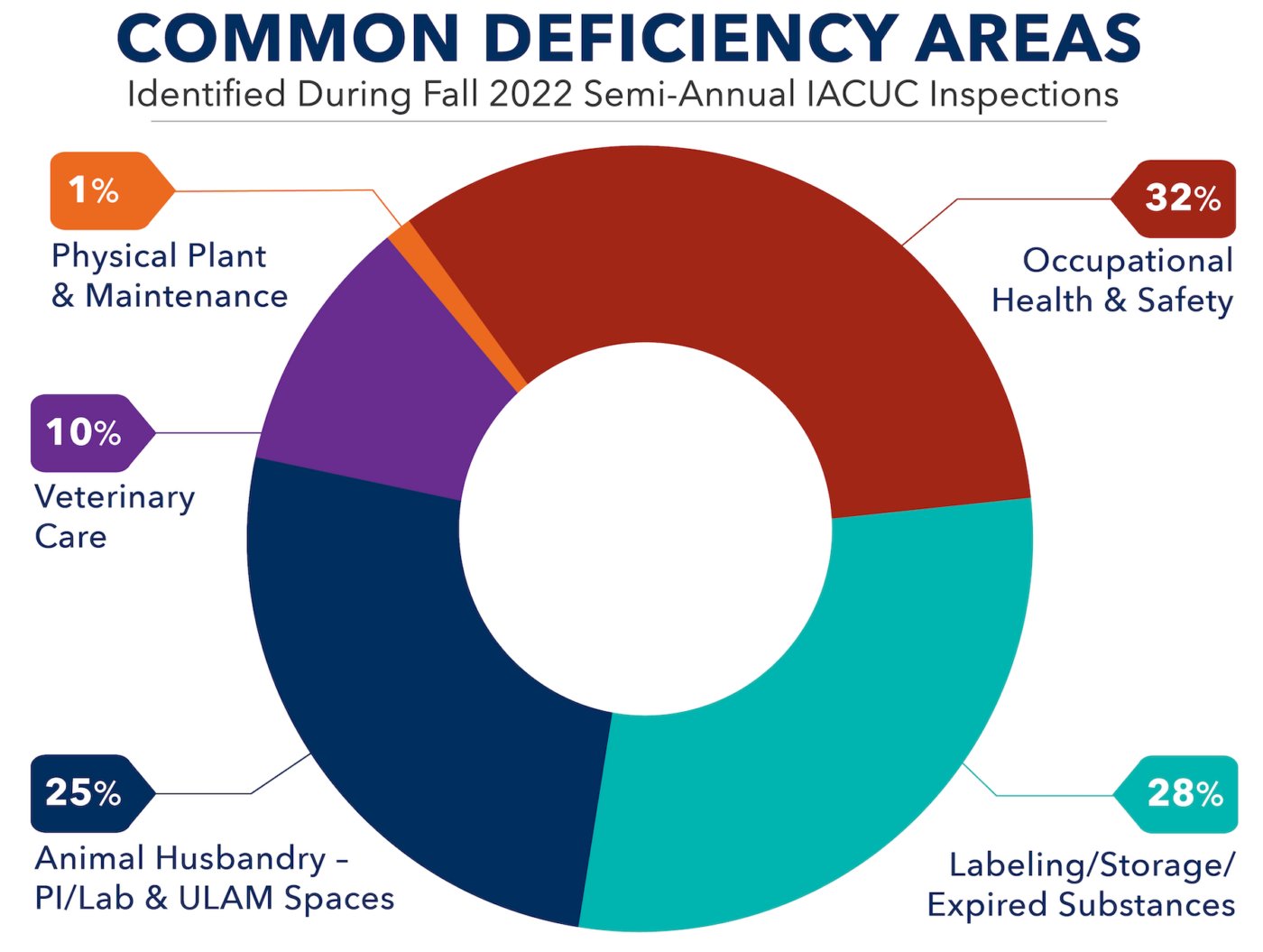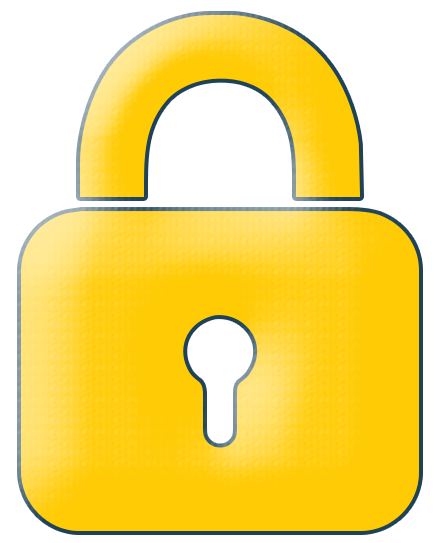
The Institutional Animal Care & Use Committee (IACUC) completed its latest round of semi-annual facility inspections in mid-September.
These inspections are one of the most important tools we have for routinely assessing programmatic strengths and identifying areas for individual and collective improvement(s) in service to the animals entrusted to our care.
Through this lens of shared responsibility for safeguarding animal welfare and ensuring continued programmatic compliance, please review and discuss the findings, suggestions for improvement, and resources below with all members of your staff – including any students involved with research in your lab – in advance of Winter 2023 semi-annual facility inspections.
The Winter 2023 round of semi-annual IACUC facility inspections is scheduled for February and March.
Inspections will run through Thursday, March 23, and include any animal rooms, surgical suite support spaces, and areas where procedures are conducted with animals.
Common Deficiency Areas** Identified During Fall 2022 Inspections:
Examples:
- Anesthetic machines or anesthetic canisters were not properly maintained
- Compressed gas cylinders not properly stored
- Eyewash stations not properly maintained
- Engineering controls (BSC, fume hoods, LEV) not certified annually
Suggestions for Improvement:
- Review the Policy on Maintaining Anesthetic Machines and Vaporizers, which states that anesthetic machines/vaporizers must be manually assessed at yearly intervals to ensure high-quality anesthesia for research animals and a safe working environment for personnel
- Utilize ULAM services for quarterly anesthetic machine servicing and certification
- Download and review EHS Compressed Gas Guidelines and SOPs, which outline that storage of compressed gas cylinders requires sturdy chains or straps secured to a wall or cabinet, and/or use of a cylinder stand
- Contact EHS at (734) 647-1143 for assistance with annual hood certification. Additional guidance is also available on the EHS website
Examples:
- Expired materials, drugs, and substances found
- Materials and substances, including chemical hazards, not appropriately labeled
Suggestions for Improvement:
- Create and maintain a regular schedule for reviewing substance expiration dates
- Review the Quick Reference Sheet: Managing Expired Drugs & Supplies
 for best practices on developing a system to monitor expired materials
for best practices on developing a system to monitor expired materials - Ensure all materials/substances are labeled and dated, if necessary, upon arrival/order (review the Guidelines on the Preparation, Storage and Expiration of Injectable Medications for more information)
- Remove expired substances or materials from circulation/use or appropriately label for non-recovery use only (as outlined by the Policy on the Use and Storage of Expired Drugs and Medical Materials in Animals)
Examples:
- Sanitation practices for all lab equipment that comes into direct contact with animals were not established and/or equipment was soiled
- Additional enrichment items lacking for singly-housed animals
Suggestions for Improvement:
- Download the Quick Reference Sheet: Equipment Cleaning & Sanitization Guidance to familiarize yourself with the procedures and expectations for equipment sanitization and testing
- Review the Identifying Single Housed Animals SOP to ensure that all singly-housed animals are appropriately identified and provided with additional species-specific enrichment items
- Contact your facility’s ULAM Husbandry Supervisor
 with questions or concerns
with questions or concerns
Examples:
- Monitoring sheets (post-operative, drug usage) were not available or incomplete
- Surgical equipment inadequately prepared (i.e., not properly sterilized)
Suggestions for Improvement:
- Consult your IACUC protocol for details on expected post-operative/post-procedural monitoring
- Contact your ULAM Faculty Veterinarian for additional information and/or training on post-operative care
- Download and print post-operative record templates
- Download the Quick Reference Sheet: Avoiding Common Mistakes When Completing Surgical Records for Mice and Rats

- Review the Guidelines on the Performance of Surgery in Rodents and Non-Rodent Mammals
Examples:
- Walls, floors, or furniture required repair
- Water leakage was noted
- Labs and storage areas found to be cluttered
Suggestions for Improvement:
- Work with your ULAM Husbandry Supervisor
 and/or Plant Operations staff to address any service or facility repairs in a timely manner
and/or Plant Operations staff to address any service or facility repairs in a timely manner - Select one or two lab members to regularly review, and be responsible for, housekeeping items/tasks
**Percentages above represent the number of overall deficient findings in a given area (e.g., Physical Plant & Maintenance – 1% denotes that, of the total findings identified during Fall 2022 semi-annual facility inspections, 1% were related to physical plant and maintenance).
Questions?
Questions or concerns about semi-annual IACUC facility inspections, or any of the items outlined above, should be directed to the Animal Care & Use Office at [email protected] or (734) 763-8028.
![]() Links marked with a lock icon can only be accessed using valid U-M login credentials.
Links marked with a lock icon can only be accessed using valid U-M login credentials.